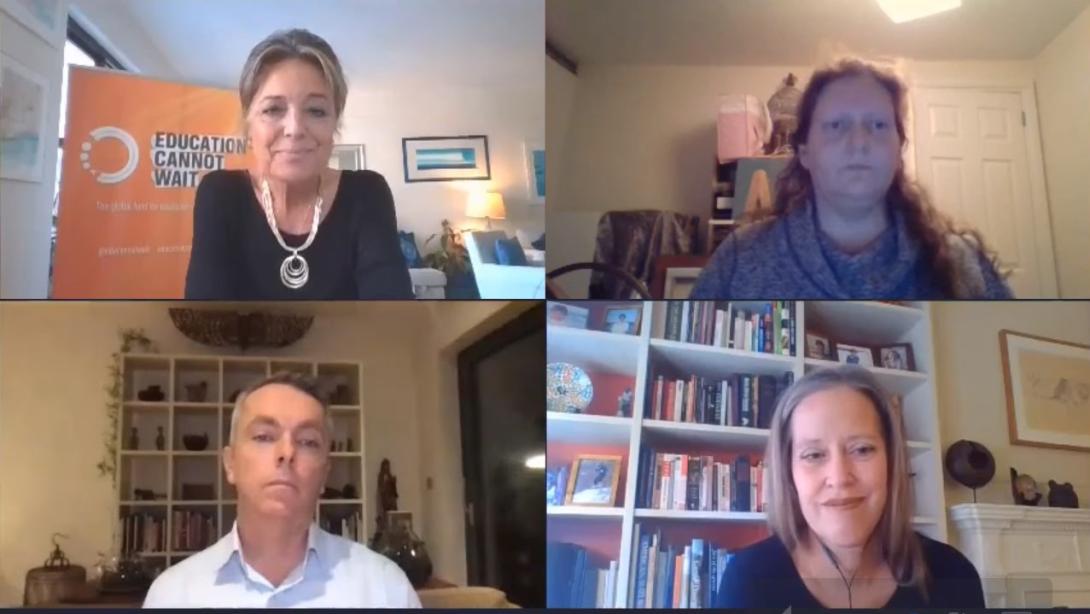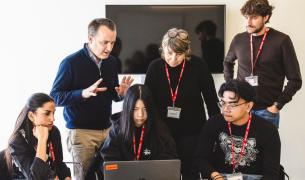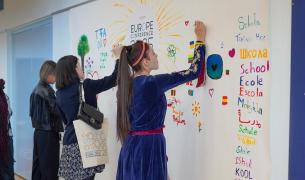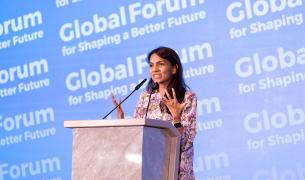Teach For All Joins Panel on Education in Emergencies at the Oxford Forum for International Development

According to the United Nations, “Every child has the right to health, education and protection, and every society has a stake in expanding children’s opportunities in life.” These rights are most at risk during emergencies, when they’re needed the most. After a humanitarian crisis, education is often the first service to be suspended and the last to be restored, despite it being cited as a top priority by affected communities. Education in Emergencies (EiE) funding appeals continue to receive less than 3% of global humanitarian funding, and yet 127 million children are currently out of school due to various crises.
The COVID-19 pandemic has disrupted education for over 1.6 billion children and youth globally, severely impacting marginalized communities. In some contexts COVID-19 further exacerbated existing humanitarian needs, and in others new humanitarian disasters compounded the pandemic. Across Teach For All, network partners including Teach For Lebanon, Teach For Afghanistan, Enseña por Colombia, Enseña Ecuador, Teach For Armenia, Teach for the Philippines and others have been responding to both the challenges posed by the pandemic and additional emergency situations that impact the communities where they work. In these countries and many others, the long-term consequences of the global learning loss from the pandemic, coupled with humanitarian crises, could be irreversible.
In February, Teach For All’s CEO, Wendy Kopp, was invited to speak about Education in Emergencies at the Oxford Forum for International Development (OxFID), one of the largest student-led development conferences in Europe. Wendy participated in the panel “Education in Crises,” which explored the long-term impacts of neglecting education during emergencies, as well as topics such as education financing, approaches to decolonizing aid, and the role of national TV and radio broadcasting to deliver education. In addition to Wendy, the panelists included Yasmine Sherif, Director, Education Cannot Wait; Joseph Nhan-O'Reilly, Co-Founder & Executive Director, International Parliamentary Network for Education; and Amanda Burrows, Senior Programme Manager, Opportunity International.
The panel discussed the continued exacerbation of inequalities for marginalized children left furthest behind, such as those affected by conflict, forced displacement (refugees or internally displaced children), and climate crises. They examined the extent of children impacted by Learning Poverty globally—those who cannot read a simple, age-appropriate text by the time they are 10 years old. The World Bank has recently concluded that due to the pandemic the learning poverty rate might increase by 10 points, from 53% to 63% in low- and middle-income countries (rising to 87% in Sub-Saharan Africa).
The discussion moved on to the importance of investing in and prioritizing teachers during emergencies. The COVID-19 pandemic has shown us that during crises we need innovative, committed teachers, who have built strong relationships with their students, develop a sense of community among them, prioritize mental health and wellbeing issues, and motivate them to learn. Stories of inspirational teachers from across the Teach For All network were shared as examples of educators who are finding creative ways to ensure their students keep learning, despite the lack of electricity and connectivity. Despite the scale of the crisis, Wendy suggested that one of the biggest challenges for global education is to make sure we maximize the new innovations that have come to light, so we can reimagine education using practices we’ve learned to be effective.
Wendy and Yasmine agreed on the importance of adopting a People First Approach during emergencies, by investing in the local leadership and agency to pioneer education solutions that are guided and led by those who have experienced the inequities being addressed. The panel discussed that a key element to creating sustainable solutions is for investments from donors to move beyond technical capacity-building efforts for implementing specific projects, and towards more leadership skills needed for leading long-term change.
Learn more about how Teach For All network partners are responding to emergencies in their countries and about our network approach to Education in Emergencies. For additional information, email our Head of Education in Emergencies, Katy Noble.


